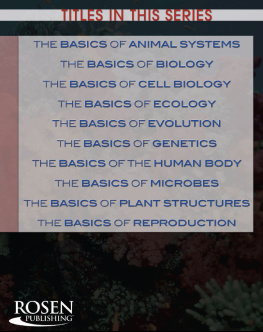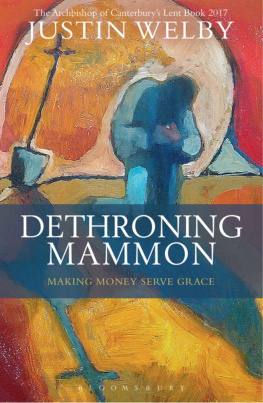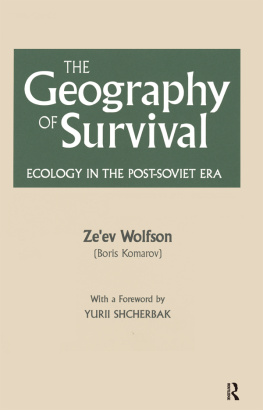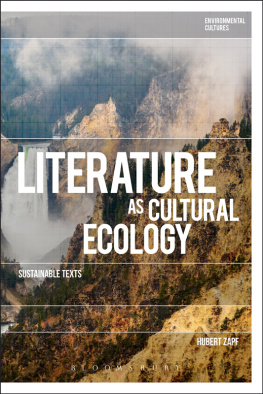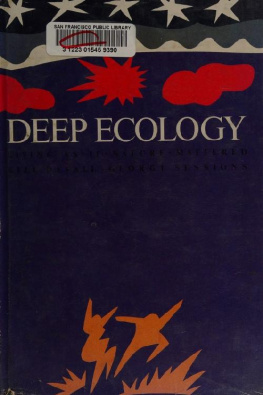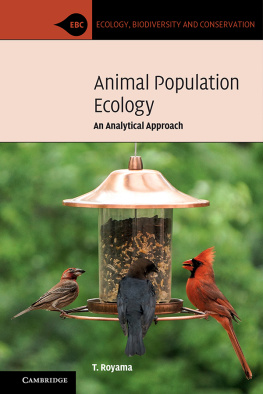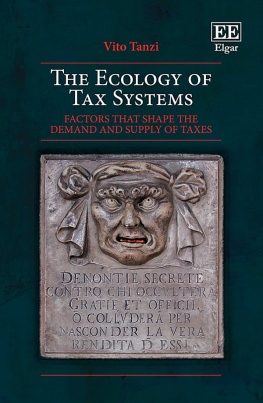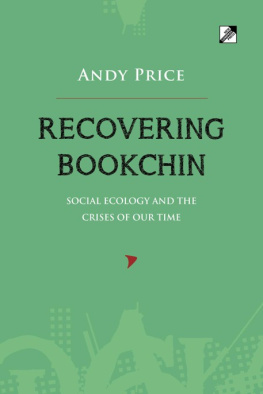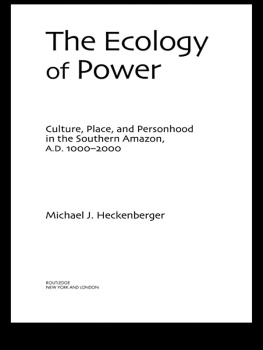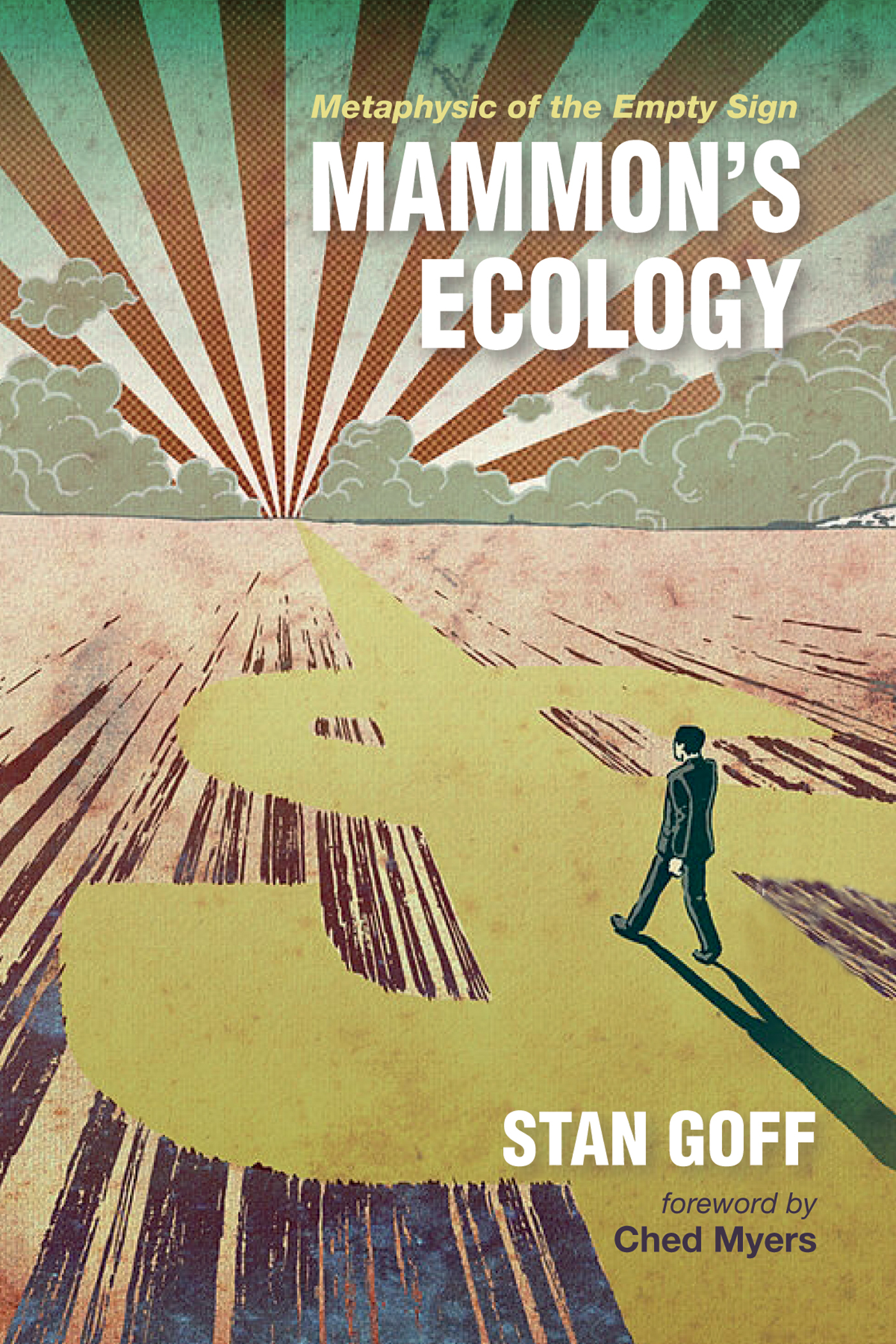For Daddy, Mimi, and Glen, who beat me to the barn.
No servant can serve two masters: for either he will hate the one, and love the other; or else he will hold to one, and despise the other. You cannot serve God and mammon.
Foreword
S tan Goff, for those unfamiliar with his growing body of work, is an extraordinary and conscientious organic intellectual. He has traversed a fascinating life-journey, from Vietnam to West Point, from Special Forces operations in Haiti (where he began his radical transformation) to peace activist, and post-Marxist social analyst to Christian disciple. In his quest to get to the roots of both public and personal pathologies, he has increasingly followed the money. This has led him to tackle, in this his sixth book, the unorthodox but compelling thesis that general-purpose money is the central ecological issue of our time .
Goffs important study is a demanding read. This is because he is, on one hand, trying to make a complicated thing simple enough to be intelligible to laypeople, thus summarizing and distilling a vast body of economic and philosophical thought; and on the other hand, trying to make that simple thing complicated again by challenging us to move beyond rhetorical sound bites to greater precision in our analysis and vocabulary of political economics. This is a work book, which invites us to become fellow detectives in discovering what we might call the secret life of money. I commend it to all who want to go deeper in their diagnosis of the dysfunction of our historical inheritance especially if you chafe, as I do, at the popular current maxim that it is easier to imagine the end of the world than the end of capitalism (the provenance of which Goff correctly identifies).
Goff chooses to frame this complicated terrain simply in terms of the ancient trope of Mammon . We find this term in a key, if routinely mishandled, parable (and commentary) of Jesus as recorded in Luke :. This teaching represents the heart of Lukes theology of economic justiceand mirrors much of the argument of this book. So it is worth exploring here as a portal into Goffs project.

Jesus story begins: There was a rich man who... (:). Lukes chapter will close with a second parable that repeats this phrase (:), revealing this narrative sequence as a carefully composed chiasm, in which the two parables bracket Jesus teaching concerning Mammon and the love of money (:). Both parables are poignant fables that illustrate, in different ways, a world caught between what Wendell Berry calls the Two Economiesone in which money is used to repair social and ecological relations, and one in which both are sacrificed to accumulate capital. Here I want to focus on the first parable which, as a tale about subverting a money system, both illumines and is illumined by Goffs study.
To subtitle this as the Parable of the Dishonest Steward (as so many versions of the New Testament do) already biases how it is read. Indeed, churches usually approach this text with an unconscious hermeneutic of capitalist moralism, implicitly taking the side of the boss while vilifying the workerdespite the fact that in the narrative, both the Master and Jesus commend the stewards insubordinate initiatives!
I prefer to think of the main character as a defective manager, using the modern analogy of a mid-level bureaucrat in a large corporation. Just as he is about to be sacked because of below-expected sales numbers, he improvises a desperate but ingenuous fire sale on credit that ingratiates him to his clients, in hopes they will reciprocate when hes out on his ear. In so doing he turns his allegiances toward an alternative, local, relational economy of mutual aid, one that ever persists just below the surface of the dominant market system. In this reading, the manager is not the villain but the hero of the story. He represents a sort of archetype for all of us who: () are captive to a toxic and oppressive economic system; () realize that we too are becoming disenfranchised; and () consequently try to monkeywrench whatever leverage we have to effect a modicum of redistributive justice. The story gives dignity to such partial but meaningful efforts to build a new world within the shell of the old, as Dorothy Day famously put it.
Like so many of Jesus parables about the rich, this one acknowledges that the world is ruled by the rentier class (an important term that Goff defines in chapter ). Lukes Jesus has already made his attitude to the percent painfully clear in an earlier folktale about a wealthy farmer who knew only how to accumulate (:), and does so again in the parable that closes our sequence... in which a self-indulgent Dives must face the cruel truth of the gulf between the opulent and the destitute from Lazarus vantage point (:). Interestingly, in both tales the elite come to terms with their contradictions only in death ; the Bible is so much less equivocal in its judgment on wealth disparity than we are!
The steward of : (Greek oikonomos , whence our word economics) belonged to what sociologist Gerhard Lenski called a dependent retainer class, literate bureaucrats whose job was to secure exorbitant profits for the master through merciless resource-extraction and labor exploitation, while at the same time maintaining working relations with peasant producers, competitive merchants, and customers. Here the analogy with modern, middle-class, educated white-collar workers is fitting: we too are people who are privileged within, yet subservient to, an economic system that both benefits and victimizes us. So whereas most of Jesus parables feature peasants as protagonists, this story uniquely calls us to discipleship.
Charges were brought to the Master that this manager was wasting his goods (:c). The resulting dismissal of the latter is summary, confirming the absolute authority of the former (:). The accused neither argues nor defends himself, knowing there is no due process in this system. Instead, in a poignant internal dialogue, he focuses on the stark alternatives facing him (:). This soft-handed bureaucrat realizes he cannot physically endure the brutal lot of day-laborers, while resorting to alms would obliterate what remained of his class honor. The story turns on the fired managers conclusion (:).
Though his plan is not yet revealed, the hoped-for result is: he is going to do whatever it takes to cross-over from the economy engineered by (and for) the rich to the remnant village economy of mutual aid. By redistributing some of his Masters wealth at his (temporary) disposal, he seeks to re-enter the traditional ethos of generalized reciprocity, by which the communities exploited by his Master manage to survive. A key value of that older economy is hospitality , and the hope is that in return for his facilitation of debt-relief, they will receive me into their homes . Having been kicked out of the Great Household, he must now rely on what feminist economist Hazel Henderson calls the love economy for survival. It is precisely this older tradition of economic culture, Goff argues in his conclusion, that we must rehabilitate if we are to restore ecological and social equilibrium to a world plundered by our toxic and terminal money-system.
The rest of Lukes story unfolds quickly (:). The defecting manager hurries to his place of business andstill acting as the Masters agent before news of his termination is broadcastsummons his clients. Tell me how much you owe, he barks, indicating that he no longer has the books; he does, however, ask for their signature on the revised bill to make the transaction official. This represents a sort of Jubilee strategy, re-enacting the old biblical vision (Lev :; Deut :) that forever stands in tension with ruling economies, as Goff notes.


